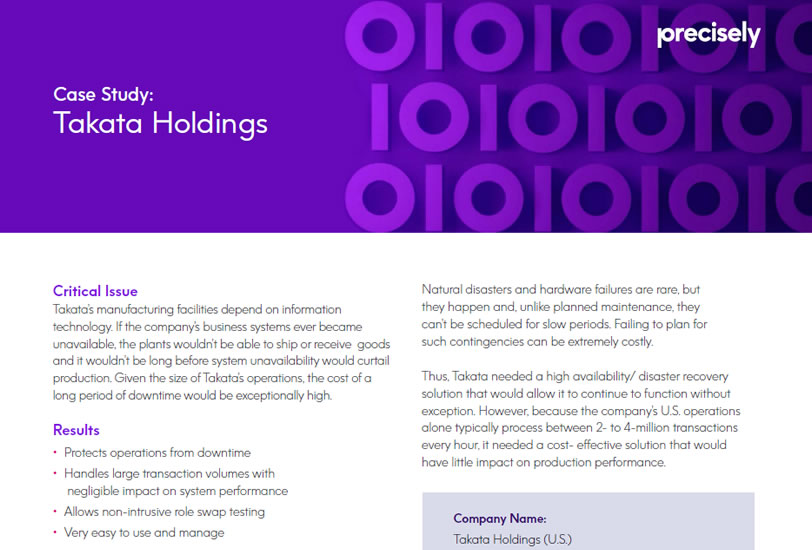Customer Story
Takata Holdings (U.S.)
Assure iTERA HA enabled Takata Holdings to switch the roles of their production and backup sites in about an hour
Takata Holdings’ manufacturing facilities depend on information technology. If the company’s business systems ever became unavailable, the plants wouldn’t be able to ship or receive goods and it wouldn’t be long before system unavailability would curtail production. Given the size of Takata’s operations, the cost of a long period of downtime would be exceptionally high.
Natural disasters and hardware failures are rare, but they happen and, unlike planned maintenance, they can’t be scheduled for slow periods. Failing to plan for such contingencies can be extremely costly.
Thus, Takata needed a high availability/ disaster recovery solution that would allow it to continue to function without exception. However, because the company’s U.S. operations alone typically process between 2- to 4-million transactions every hour, it needed a cost- effective solution that would have little impact on production performance.
Takata is a major manufacturer of automotive safety products, including seat belts, airbags, child restraints and a variety of other components and electronic systems. Its busy factories run around the clock.
Like all manufacturers, Takata’s operations rely on a variety of software applications. If its core business systems were unavailable, the company would immediately lose the ability to ship and receive goods, process orders and interact with its customers and suppliers through its EDI software. Production could continue for a while, but it wouldn’t be long before that would be seriously affected too.
For more than five years, Assure iTERA HA has protected Takata’s systems from the threat of downtime by replicating all applications and data—including both user and system data— from the company’s production server partitions, which are now consolidated in Auburn Hills, Michigan, to a backup server in Greensboro, North Carolina. Assure iTERA HA stands ready to perform a rapid “role swap” between the two machines so the backup system can assume the production role if the primary server should become unavailable for any reason.
